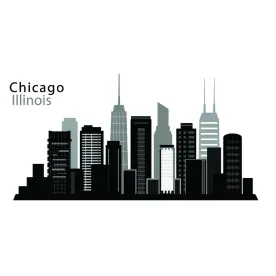The Illinois Supreme Court issued a decisive blow on June 4, 2020, to destination plaintiffs seeking to forum-shop in Illinois. Following the U.S. Supreme Court’s lead, the Illinois top court held in Christy Rios et al., v. Bayer Corporation et al., 2020 IL 125020 (June 4, 2020), that Illinois lacks personal jurisdiction over nonresident defendants when there is no “meaningful” link between the defendants’ conduct in Illinois and the nonresident plaintiffs’ claims. Notwithstanding nonresident defendants’ general and purposeful activities in the state or the similarity of claims of resident plaintiffs, “Illinois has no particular interest in resolving claims that did not arise out of or relate to activities that occurred here.” Id. at ¶ 31. Accordingly, out-of-state corporations will no longer be forced to litigate mass tort or class action claims in Illinois against nonresident plaintiffs whose injuries arose elsewhere.
In this GT Alert, we examine the Illinois Supreme Court’s holding that specific personal jurisdiction will only be satisfied when a nonresident defendant’s conduct in the state is adequately linked to the nonresident plaintiff’s claim, as well as plaintiffs’ failed attempts to satisfy their burden.
By way of background, Illinois counties, primarily Cook, Maddison, and St. Clair, have a reputation for plaintiff-friendly juries and large verdicts and are seen as attractive destinations for out-of-state plaintiffs. This has generated a recurring practice of naming Illinois resident plaintiffs alongside numerous out-of-state plaintiffs whose claims have no connection with the state. In Rios, for example, 179 plaintiffs from across the nation initiated an Illinois lawsuit against a nonresident medical device company for individual injuries that arose and occurred in different states. Roughly 160 of those plaintiffs were not Illinois residents and otherwise had no connection to Illinois.
After the U.S. Supreme Court entered its decision in Bristol-Myers Squibb Co. v. Superior Court of California, 582 U.S. ___, 137 S. Ct. 1773 (2017), the defendant in Rios moved to dismiss all non-Illinois residents’ claims on grounds of lack of personal jurisdiction. The medical device defendant did not deny it purposefully directed activities to Illinois by conducting clinical trials and training physicians in the state, but argued its general conduct in the state was not sufficiently linked to the nonresident plaintiffs’ claims to support personal jurisdiction. Rios, 2020 IL 125020, ¶ 24.
The plaintiffs in Rios sought to avoid Bristol-Myers by purporting to link the defendant’s conduct in Illinois to the allegations in the complaint. In addition to clinical trials in the state, the plaintiffs asserted the defendant orchestrated a marketing campaign in Illinois that ultimately spread misinformation about the product. Id. at ¶¶ 8, 13. Plaintiff also claimed the defendant “used Illinois to develop, label, or work on the regulatory approval” for the device. Id. at ¶ 21. In the plaintiffs’ view, those in-state activities permit Illinois courts to exercise personal jurisdiction over defendants with respect to the nearly 160 nonresident plaintiffs’ claims. Id.
The trial court agreed. Relying on M.M. v. GlaxoSmithKline LLC, 2016 IL App. (1st) 151909, ¶ 75, the trial court found “Illinois had ‘an indisputable interest’ in resolving litigation that stemmed from clinical trials held in Illinois by Illinois doctors on Illinois subjects.” Rios, 2020 IL 125020, ¶ 10. On appeal to the state’s intermediary court, the decision was confirmed as the appellate court found the defendant “purposefully availed” itself of Illinois through its directed targeting and marketing in Illinois, clinical trials in Illinois, and contracting with Illinois physicians. Id. at ¶ 12. The appellate court allowed plaintiffs’ manufacturing defect and failure to warn claims to survive, finding that Bristol-Myers was “easily distinguishable.” Id.
The Illinois Supreme Court disagreed. First, it notes M.M. was decided a year before Bristol-Myers, which “clarified that ‘a corporation’s continuous activity of some sorts within a state … is not enough to support the demand that the corporation be amenable to suits unrelated to that activity.’” Id. at ¶ 32 (quoting Bristol-Myers, 137 S. Ct. at 1781). Accordingly, “M.M. does not reflect the law in Illinois and should no longer be relied upon.” Id. Instead, courts are to ask the question “whether the nonresident plaintiffs’ claims arise out of, or relate to, those [nonresident defendants’] activities in any meaningful sense of the terms.” Id. at ¶ 24.
Applying the facts of the case, which the defendant did not dispute, the court found the nonresident plaintiffs failed to identify any jurisdictionally relevant links between their claims and Illinois. Id. at ¶ 28. Indeed, plaintiffs’ alleged general contacts in the state were nearly verbatim identical to personal jurisdiction arguments used and rejected against the same defendant in other states. Id. at ¶ 8, n. 1. Specifically, plaintiffs’ argument that the defendant neglected to maintain and establish procedures for proper manufacturing in Illinois failed because the product at issue was manufactured in different states. Id. at ¶ 25. Plaintiffs’ allegations that the defendant “willfully disseminated false and misleading information” about the product in Illinois likewise failed because nonresident plaintiffs could not allege “either they or their physicians received that false information” in Illinois. Id. at ¶ 26. Similarly, plaintiffs’ claim that the defendant undertook a duty to train physicians in Illinois failed because “the nonresident plaintiffs d[id] not allege that [the defendant] trained their physicians in Illinois, and again, the nonresidents’ devices were not implanted in Illinois.” Id. at ¶ 27. Accordingly, the court found “no adequate link” between Illinois and the nonresident plaintiffs’ claims to exercise personal jurisdiction over the nonresident defendant. Id. at ¶ 28.
Faithfully applying Bristol-Myers, the Illinois Supreme Court joined other jurisdictions across the country holding nonresidents’ general and purposeful activities directed to the forum do not provide a basis for the state courts to assert personal jurisdiction. A nonresident plaintiff’s claim must arise out of or relate to the nonresident defendant’s conduct in a meaningful sense of the term. The Rios holding is a significant victory to combat future litigation tourism in Illinois’ plaintiff-friendly courts for mass tort and class action claims.
The Court further found “it would not be reasonable for the nonresidents’ claims to proceed in Illinois.” Id. at ¶ 30. The minimum contact analysis for personal jurisdiction protects nonresident defendants “against the burdens of litigating in a distant or inconvenient forum.” World-Wide Volkswagen Corp. v. Woodson, 444 U.S. 286, 291-92 (1980). This is often described in terms of reasonableness, and courts consider (1) the burden on defendant, (2) the forum state’s interest in adjudicating the dispute, (3) the plaintiff’s interest in obtaining convenient and effective relief, and (4) the judicial system’s interest in obtaining the most efficient resolution of the controversy. Id. at 292. The Rios court emphasized:
[e]ven if the defendant would suffer minimal or no inconvenience from being forced to litigate before the tribunals of another State; even if the forum State has a strong interest in applying its law to the controversy; even if the forum State is the most convenient location for litigation, the Due Process Clause, acting as an instrument of interstate federalism, may sometimes act to divest the State of its power to render a valid judgment.
Rios, 2020 IL 125020, ¶ 30 (quoting Bristol-Myers, 137 S. Ct. at 1780-81). The court made clear that “Illinois has no particular interest in resolving claims that did not arise out of or relate to activities that occurred here.” Id. at ¶ 31.



 />i
/>i

